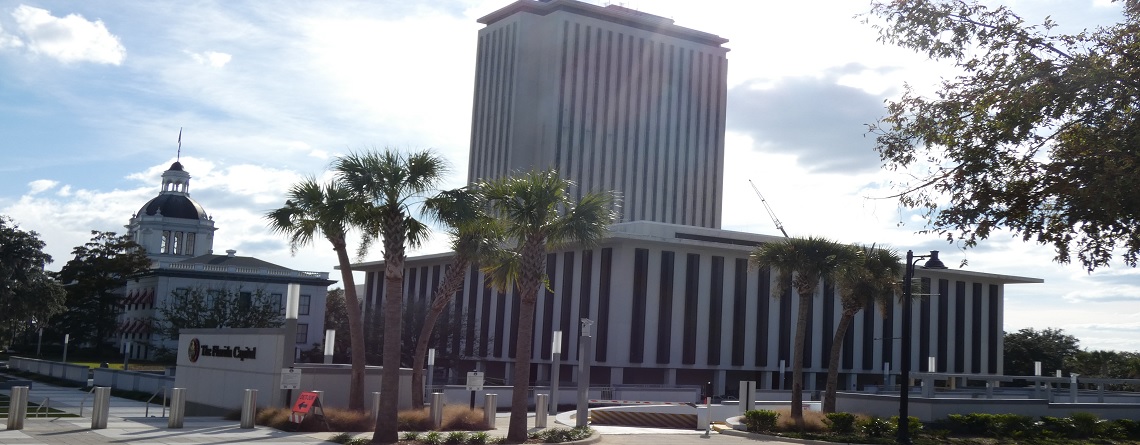
The 2023 Florida Legislative Session made some changes to Senate Bill 4D, which was passed in 2022. Senate Bill 4D brought sweeping changes to how condominiums and cooperatives that are 3 stories or taller must fund their reserves. The 2023 updated bill, Senate Bill 154, was essentially a glitch bill that ironed out some of the problems from the previous bill in 2022.
The following are the main takeaways and what is needed to be known going forward from the new bill:
Structural Integrity Reserve Studies for Condominiums/Cooperatives, 3 stories or taller:
Structural Integrity Reserve Studies (SIRS) must be performed for each building on the property at least once every 10 years and the first one must be completed by December 31, 2024 in almost all cases. It should be noted that this does not apply to nonresidential condominiums that are 3 stories or taller, which are exempt from SIRS.
Structural integrity reserve study means a study of the reserve funds required for future major repairs and replacement of the condominium property. The structural items consist of:
- Roof
- Structure, including load-bearing walls and or other primary structural members and primary structural systems
- Fireproofing and fire protection systems
- Plumbing
- Electrical Systems
- Waterproofing and Exterior Painting
- Windows and Exterior Doors (that are association responsibility)
- Any other item that has a deferred maintenance expense or replacement cost that exceeds $10,000 and the failure to replace or maintain such item negatively affects the items listed in items 1 – 7.
At a minimum, a structural integrity reserve study must identify each item of the condominium/cooperative property being visually inspected, state the estimated remaining useful life and the estimated replacement cost or deferred maintenance expense of each item being visually inspected, and provide a reserve funding schedule with a recommended annual reserve amount that achieves the estimated replacement cost or deferred maintenance expense of each item being visually inspected by the end of the estimated remaining useful life of the item. The structural integrity reserve study may recommend that reserves do not need to be maintained for any item for which an estimate of useful life and an estimate of replacement cost cannot be determined, or the study may recommend a deferred maintenance expense amount for such item. The structural integrity reserve study may recommend that reserves for replacement costs do not need to be maintained for any item with an estimated remaining useful life of greater than 25 years, but the study may recommend a deferred maintenance expense amount for such item. This paragraph does not apply to buildings less than three stories in height; single-family, two-family, or three-family dwellings with three or fewer habitable stories above ground.
SIRS can have the visual inspection portion of the report performed by a professional engineer, licensed architect, reserve specialist (a designation from the Community Associations Institute), or a professional reserve analyst (a designation from the Association of Professional Reserve Analysts).
Any budget adopted on or after December 31, 2024 must include the funding specified in the SIRS and members cannot vote to waive or reduce funding of the SIRS reserves, or vote to use the SIRS reserves for any other purpose except for the components in the SIRS. Members in buildings 3 stories or higher may still vote to waive or reduce reserve funding for nonstructural (non-SIRS components) reserve items. Also, the voting threshold was changed to waive or reduce reserve funding to a majority of the voting interests (an increase from the previous requirement of a majority of a quorum).
Prior to May 2022, there was no requirement that any association had to have a reserve study of any kind.
Condominiums/Cooperatives, one or two stories:
Members may still vote to waive or reduce reserve funding for one or two story buildings. They have to include the reserve schedule and funding for paving, painting, roofing and any reserve component where the replacement cost exceeds $10,000. This is essentially unchanged from how it has been for many years and there is no requirement to have a reserve study. However, the voting threshold to waive or reduce the reserves has changed to a majority of the voting interests, which is an increase from the previous requirement of a majority of a quorum.
All Condominiums/Cooperatives:
The passage of Senate Bill 154 formally allows for the use of inflation in reserve schedules. However, it is not mandated to be used. Previously in recent years, there was an informal ruling by The Division of Professional Regulation (DBPR) Division of Condominiums, Timeshares, and Mobile Homes that interpreted the language in Florida Statutes 718 and the Florida Administrative Code that yearly increases in the cash flow reserve schedule could be a violation. It was the case that different heads of the DBPR legal departments had interpreted this differently over the years. This is now written into the statutes and should bring clarity to the issue.
Note: This post is for information purposes only and is not intended to be legal advice. For specific questions or guidance pertaining to your association, please contact a community association attorney.